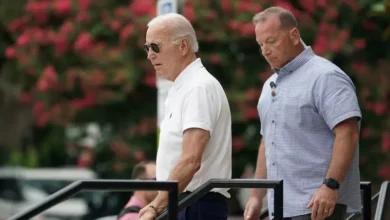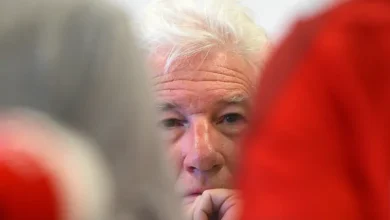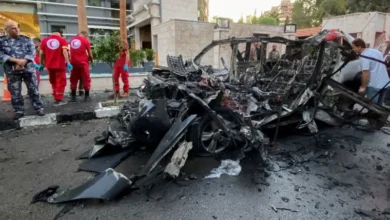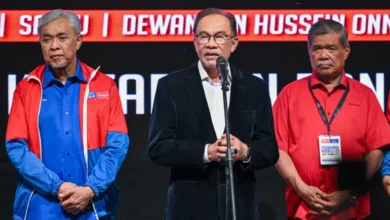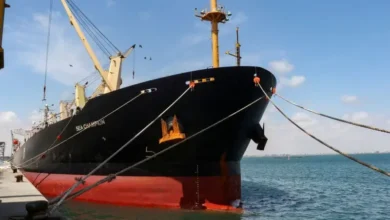Despite anti-coup rhetoric, can the West exit Niger, its latest Sahel hub?
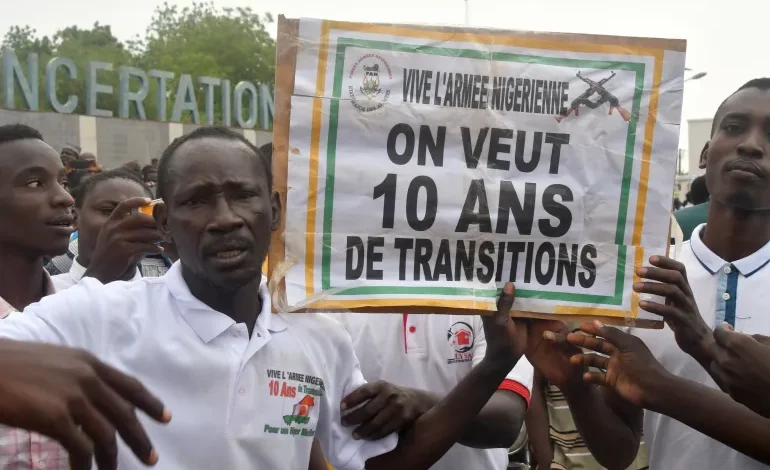
At 57 years old, Afhagad, a driver from northern Niger, has lived through five coups in his life.
“Our first coup d’etat was Kountche, Colonel (Seyni) Kountche, on 15 April, 1974,” said Afhagad, who asked to use a pseudonym amid the country’s ongoing political crisis, before quickly rattling off names of other strongmen who have seized power in the West African country: Ibrahim Bare Mainassara (1996), Daouda Malam Wanke (1999), Salou Djibo (2010) – and now, perhaps, the members of the self-described National Council for the Safeguard of the Homeland.
This latest addition to Afhagad’s list came on Wednesday and is still unfolding after President Mohamed Bazoum’s presidential guard barricaded the presidential palace and demanded his resignation. Later that night, after hours of speculation about how the standoff would end, the coup plotters became, it seems, coup leaders.
“We, the Defence and Security Forces, united within the National Council for the Safeguard of the Homeland, have decided to put an end to the regime you know,” Colonel-Major Amadou Abdramane said in a message delivered on state television. “This follows the continuing deterioration of the security situation and poor economic and social governance.”
The shocking turn of events deposed the leadership of the Western-allied country and added yet another West African country to the band of military-led nations stretching from the Atlantic to the Sahara. But it remains unclear how much might change for ordinary Nigeriens or the country’s Western allies.
Will it still be ‘business as usual’?
US, French and other European troops have a large footprint in the country for their regional “counterinsurgency” operations – one they’ll be loathe to give up, even if it means playing nice with the military-led government, analysts say.Meanwhile, the security and economic situation for ordinary Nigeriens – the coup’s purported raison d’etre – remains as entrenched as ever in one of the world’s poorest countries, itself not only dealing with armed conflict at home but surrounded by volatile wars on its doorstep.
“Last week, there was no indication of any coup; it was all government officials, diplomats, whatever – business as usual,” said Ulf Laessing, head of the Sahel program at Germany’s Konrad Adenauer Foundation, who just returned from a trip to the capital.
At the same time, however, more people might have seen the coup coming if they had realised the extent of discontent lurking underneath, noted Rida Lyammouri, a senior fellow at Rabat-based think tank Policy Centre for the New South.
“The security situation in parts of the country, it’s not as good as a lot of people have thought,” he told Al Jazeera.And in the country’s west, armed groups linked to ISIL (ISIS) and al-Qaeda roam the deadly tri-border area shared with Mali and Burkina Faso, part of the long-running conflict in those three countries.
According to a June 2022 report by the People’s Coalition for the Sahel, a broad coalition of civil society groups in the region, eight civilians are killed daily on average in the area.
Just last week, when Laessing was visiting the riverside capital, Niamey was abuzz with white 4×4 trucks, European soldiers and diplomats. The French had recently moved their Sahel forces to Niger, the new regional hub for Paris’s and other European nations’ fight against armed groups after soured relations with the military governments in Burkina Faso and Mali led to their withdrawal from those countries.
While the Nigerien mutineers justified their takeover by citing a “deteriorating security situation“, weapons flowed from the Europeans and Americans were providing the military with tons of material, Laessing told Al Jazeera. And that pipeline might now be at risk.
Already, the US, the French and the United Nations have all loudly condemned the coup, and UN humanitarian operations have been suspended. The US State Department declared on Wednesday, in a statement that referred to Bazoum as the president, that “the strong US economic and security partnership with Niger depends on the continuation of democratic governance and respect for the rule of law and human rights”.
Yet Western countries with a military presence in Niger might be unwilling to cut off relations completely.
“It’s really tough for the US. I think they will do everything to find a way to work with them,” Laessing said, referencing the huge US drone base in the northern city of Agadez. “The US has quite a few bases in countries which are not really democratic.”


